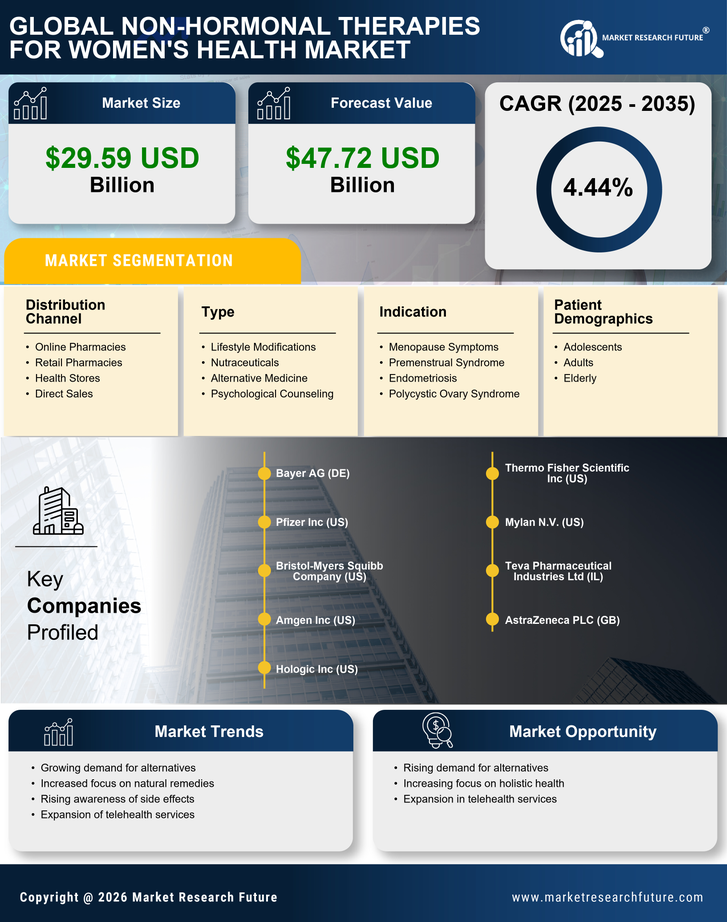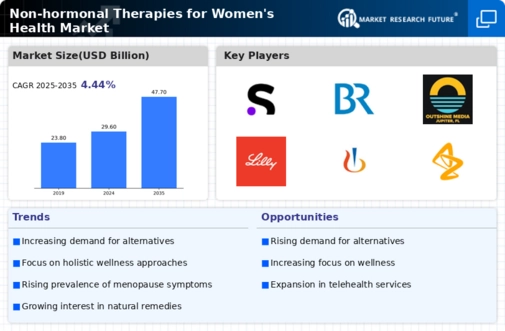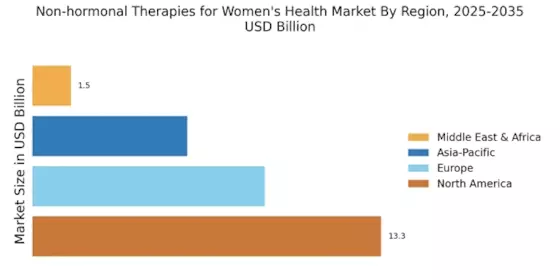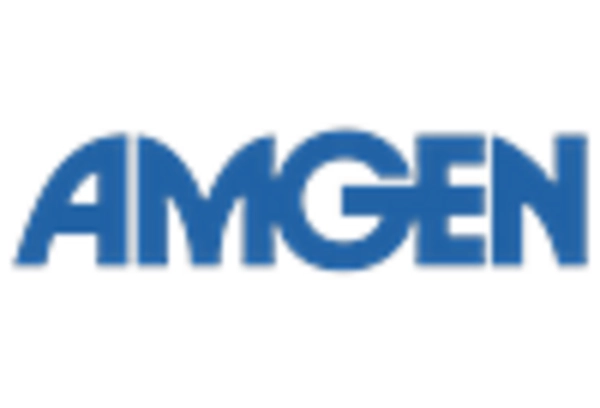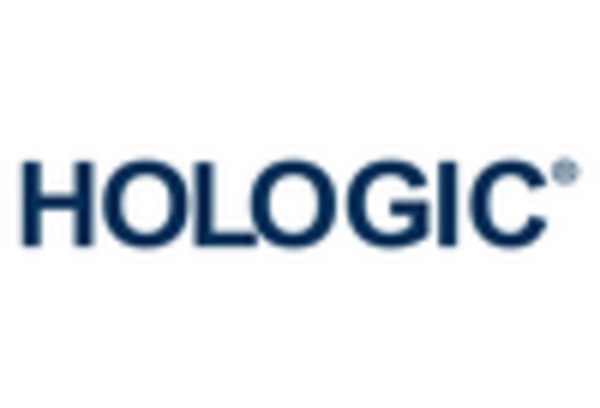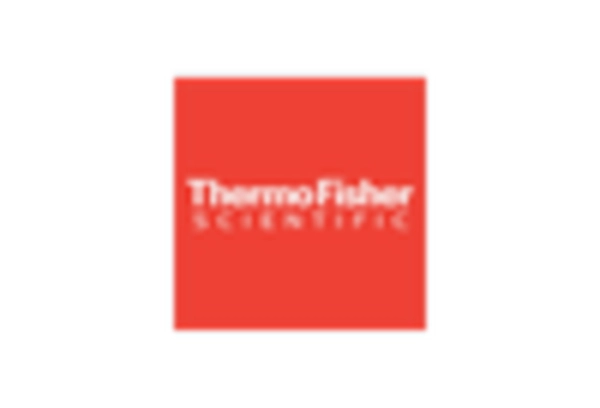Focus on Personalized Medicine
The emphasis on personalized medicine is reshaping the landscape of the Non-hormonal Therapies for Women's Health Market. As healthcare evolves, there is a growing recognition that treatment should be tailored to individual patient needs. This approach is particularly relevant in women's health, where responses to therapies can vary significantly. The integration of genetic testing and biomarker analysis is enabling healthcare providers to offer more customized non-hormonal treatment options. This trend is expected to enhance patient satisfaction and adherence to treatment regimens, ultimately driving market growth. Furthermore, as more women seek personalized solutions, companies that invest in research and development of tailored non-hormonal therapies are likely to gain a competitive edge.
Integration of Holistic Health Approaches
The integration of holistic health approaches into women's healthcare is emerging as a vital driver for the Non-hormonal Therapies for Women's Health Market. Many women are increasingly seeking comprehensive treatment options that encompass physical, emotional, and mental well-being. This trend is reflected in the growing popularity of complementary therapies such as acupuncture, herbal medicine, and mindfulness practices, which are often used alongside non-hormonal treatments. Research indicates that women who adopt holistic approaches report higher satisfaction levels with their health outcomes. As healthcare providers recognize the value of holistic care, there is a corresponding increase in the availability of non-hormonal therapies that align with these principles. This shift not only enhances patient engagement but also fosters a more supportive environment for women's health.
Regulatory Support for Non-hormonal Options
Regulatory bodies are increasingly supporting the development and approval of non-hormonal therapies, which is a significant driver for the Non-hormonal Therapies for Women's Health Market. Recent initiatives aimed at expediting the review process for non-hormonal treatments reflect a commitment to expanding therapeutic options for women. This regulatory environment encourages innovation and investment in non-hormonal therapies, as companies are more likely to pursue research and development in this area. The approval of new non-hormonal products not only enhances market competition but also provides women with a broader array of choices for managing their health. As regulatory frameworks continue to evolve, the market for non-hormonal therapies is poised for substantial growth.
Increasing Awareness of Women's Health Issues
The rising awareness surrounding women's health issues is a pivotal driver for the Non-hormonal Therapies for Women's Health Market. As educational campaigns proliferate, women are becoming more informed about their health options, leading to a greater demand for non-hormonal therapies. This shift is particularly evident in the management of menopause symptoms, where women are increasingly seeking alternatives to hormone replacement therapy. According to recent surveys, approximately 60% of women experiencing menopausal symptoms express a preference for non-hormonal treatments. This trend suggests a significant market opportunity for companies specializing in non-hormonal therapies, as they align their offerings with the evolving preferences of health-conscious consumers.
Rising Incidence of Hormone-Related Disorders
The escalating incidence of hormone-related disorders among women is a critical factor propelling the Non-hormonal Therapies for Women's Health Market. Conditions such as polycystic ovary syndrome (PCOS) and endometriosis are becoming more prevalent, prompting a search for effective management strategies. Data indicates that PCOS affects approximately 10% of women of reproductive age, leading to increased demand for non-hormonal treatment options. As healthcare providers recognize the limitations and side effects associated with hormonal therapies, there is a growing inclination towards non-hormonal alternatives. This trend not only reflects a shift in treatment paradigms but also highlights the potential for innovation in the development of non-hormonal therapies tailored to address these specific health challenges.
